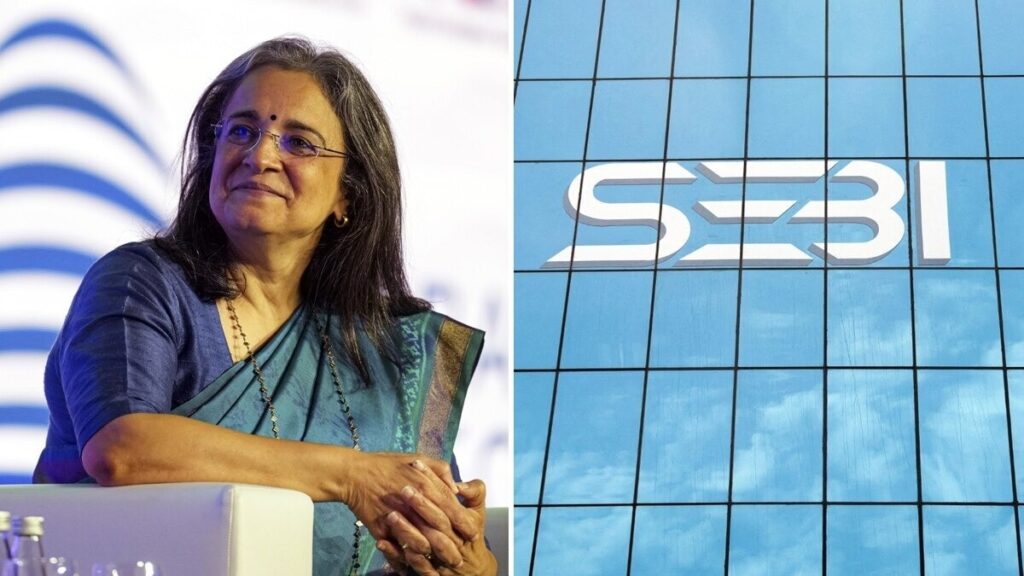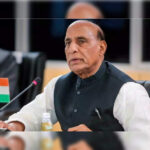The Securities and Exchange Board of India (SEBI) convened its highly anticipated board meeting today, marking a pivotal moment for the regulatory body and its Chairperson, Madhabi Puri Buch. This meeting follows widespread scrutiny, driven by allegations raised against Buch, including potential conflicts of interest and concerns over transparency in SEBI’s recent actions. The allegations have prompted calls for thorough reviews from key political figures and entities, pushing SEBI into the spotlight.
At the center of the controversy are claims made by both Hindenburg Research and political representatives, particularly the Congress Party, that focus on perceived lapses in SEBI’s regulatory oversight. Notably, these accusations include non-disclosures and Buch’s alleged involvement in matters that could lead to a conflict of interest, potentially compromising the integrity of the regulatory body. With these accusations surfacing, today’s board meeting has become a critical forum for addressing these claims.
The timing of this meeting is significant, as SEBI has been grappling with various policy matters, some of which have exceeded the public consultation deadlines. There is speculation that the SEBI board may address several pending consultation papers, particularly those that touch on public market reforms. While the broader market and institutional investors are watching for any decisions or clarifications, the primary focus remains on how SEBI will respond to the allegations surrounding its leadership.
Madhabi Puri Buch, who took over as SEBI Chairperson in 2022, has since been at the forefront of various reforms in India’s capital markets, including measures aimed at enhancing transparency and curbing market manipulation. However, her tenure has now come under intense scrutiny following the reports and accusations, leading to growing pressure on SEBI to restore its image and credibility. Today’s meeting could determine the future course of action, including possible changes in governance or accountability frameworks.
Market watchers and financial analysts are also eyeing today’s developments closely. SEBI’s regulatory oversight plays a crucial role in maintaining market stability, and any shift in its leadership or policies could have ripple effects across the financial ecosystem. Foreign Institutional Investors (FIIs), for instance, have been actively engaging with the Indian markets, contributing significant inflows into domestic equities. FIIs sold shares worth Rs 1,209.10 crore last Friday, while Domestic Institutional Investors (DIIs) remained net buyers, purchasing shares worth Rs 6,886.65 crore, signaling confidence in the local market amid the ongoing regulatory discussions.
As the SEBI board meeting progresses, the broader market sentiment remains cautiously optimistic. Analysts are keen to understand the potential implications of the meeting’s outcomes, especially regarding regulatory actions or changes that may arise from today’s deliberations. There is also a focus on how SEBI will manage its regulatory priorities moving forward, particularly in light of the allegations against Buch. Whether SEBI decides to institute internal reviews or introduces new reforms to counter these criticisms, the decisions made today will likely shape the regulatory landscape in the months ahead.
This meeting has also attracted attention beyond the financial markets. Key political entities are watching closely, given the implications of the board’s decisions on public trust in regulatory bodies. Allegations of conflicts of interest and improper disclosures, if left unaddressed, could undermine confidence in SEBI’s ability to enforce market regulations fairly. As the meeting unfolds, there is widespread anticipation for SEBI’s official response to these pressing concerns.




 Rajnath Takes Aim at Pakistan Over Terrorism, Cash Crunch
Rajnath Takes Aim at Pakistan Over Terrorism, Cash Crunch 